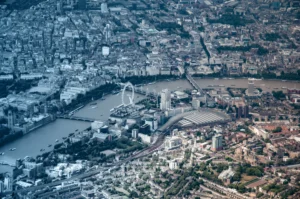The United Kingdom is known for its complex visa regime, and the process of obtaining a British visa can differ significantly from the more familiar Schengen visa application. Visa refusals are a common issue, and statistics highlight several main reasons that lead to negative decisions. In this article, we have compiled the most common reasons for refusal of a UK visa in 2024, so you can consider them when preparing your application.
- Unclear Purpose of Travel. Clearly stating the purpose of your trip is crucial. If you apply for a business visa but do not provide an invitation from a company, it may lead to refusal. It’s important to ensure that the purpose of your trip is correctly stated and supported by relevant documents.
- Designating an Excessively Long Stay. If you plan a trip for several weeks without a clear reason, the visa officer may question your intentions. Long trips require explanations and proof of available funds.
- Lack of Required Documents. All information provided in the application must be supported by documentation. Even if you have a high status, the absence of an employment reference can result in refusal.
- Applicant Belongs to a Risk Group. Young individuals without families, with limited work experience, and no property may fall into a risk group. Such factors increase the likelihood of refusal.
- Incorrectly Completed Visa Application. Mistakes or typos in the application can be grounds for refusal. All fields must be filled out carefully and clearly.
- Errors and Inaccuracies in Document Translations. Although applicants may perform document translations themselves, it is crucial that they are accurate. Errors can influence the visa officer’s decision.
- Incorrectly Uploaded Documents on the Visa Center Website. It’s important to ensure that all documents are uploaded in the correct format and meet the requirements. Unreadable or incorrect files may lead to refusal.
- Low Salary. A low income can raise suspicions about your intentions to stay in the UK illegally. Your salary must be sufficient to support yourself during the trip.
- Short Employment History. A brief employment history can also affect the visa decision. A long tenure at a company demonstrates your economic and social ties to your home country.
- Signatures of Responsible Persons on Reference Letters. Employment documents must be signed by competent individuals. Signing a reference letter yourself can result in refusal.
- Low Bank Balance. Insufficient funds in your account may raise doubts about your ability to cover expenses during your trip. It’s essential that the funds are personal and not credit.
- Savings Disproportionate to Income. If you have a significant amount in your account relative to a low income, this may raise suspicions about the legality of your funds’ sources.
- Suspicious Transactions in Your Account. You need to provide clear and understandable bank statements. Incorrect or confusing transactions can lead to refusal.
- Lack of Documents from a Sponsor. If you are relying on sponsorship, you must provide all financial documents from your sponsor. A lack of such papers can also result in refusal.
- Small Income and Savings of the Sponsor. The sponsor must have stable financial resources. If their income is insufficient, it may negatively impact your application.
- Sponsor is an Unrelated Person. The rationale behind sponsorship is crucial. Friends or distant relatives cannot be sponsors, as this raises suspicions.
- Concealing the Existence of Relatives in the UK. You must declare all relatives residing in the country. Hiding this information can lead to refusal.
- Close Relatives Living in the UK Illegally. If your relatives violate immigration laws, this may affect your entry permission.
- Poor Financial Situation of Relatives. If your relatives cannot provide solid financial support during your stay, this can be a reason for refusal.
- Submission of False Documents. Providing false information or documents is a serious violation that can lead to a ban on entering the country.
- Misuse of Visa in Previous Trips. If you had a visa before but violated its terms, this may negatively impact your new application.
- Previous Visa Refusals in Other Countries. Refusals for other visas may affect your UK application, especially if the reasons were serious.
Conclusion
Refusal of a British visa can occur for many reasons, and understanding these reasons will help you avoid mistakes when applying. Remember, even if you receive a refusal, it doesn’t mean you have permanently lost the opportunity to visit the UK. Study the process and ensure maximum readiness before submitting documents. If you want to increase your chances of approval, consider consulting visa processing specialists.



